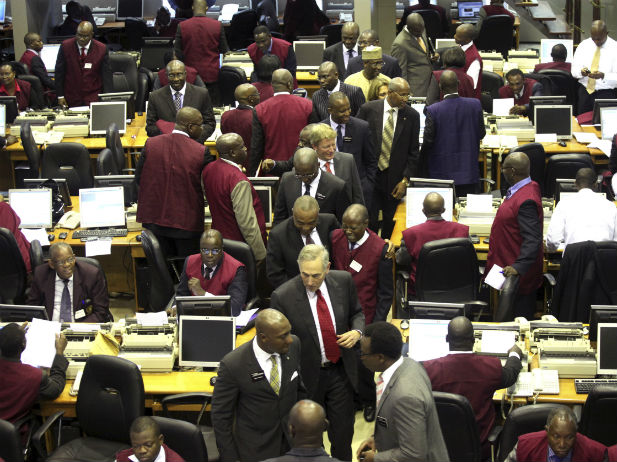BUSINESS

TRUMP’S THREAT WREAKING HAVOC ON NIGERIAN STOCK MARKET, NAIRA – ECONOMISTS WARN
Financial experts and economists have sounded the alarm over the sharp decline in Nigeria’s stock market and currency, linking the downturn directly to U.S. President Donald Trump’s threat to invade Nigeria and his designation of the country as a “Country of Particular Concern” (CPC).
Over the past ten days, both the Nigerian Exchange Limited (NGX) and the naira have suffered significant setbacks. The NGX reportedly lost ₦2.8 trillion in value last week, continuing its bearish trend into Monday. Meanwhile, the naira weakened further across official and parallel markets, closing at ₦1,437.29 per dollar.
According to analysts, these developments are rooted in shaken investor confidence, capital flight fears, and growing uncertainty about the stability of Nigeria’s international relations and domestic economy.
Investor Confidence Crumbles
Mazi Okechukwu Unegbu, former president of the Chartered Institute of Bankers of Nigeria (CIBN), said the market reaction was “anticipated,” explaining that Trump’s comments created widespread fear and hesitation among investors.
“When Trump made the statement, there was fear in the air, which has affected investors’ confidence,” Unegbu said. “People have started to hold their investment plans for the NGX.”
He described the ripple effects of Trump’s statement as being felt across all sectors of the economy but doubted that the U.S. president would take any direct military action.
Nonetheless, Unegbu argued that the current downturn offers a strategic opportunity for patient investors, stressing that Nigeria’s long-term stability depends on boosting local production, reducing import dependence, and improving security to attract foreign investment.
“The floating of the FX market will make sense only when Nigeria produces what it consumes,” he added.
Global Scrutiny and Economic Fallout
Economist and university lecturer Prof. Godwin Oyedokun warned that the CPC designation had compounded Nigeria’s economic woes by damaging its global reputation and sparking fears of possible sanctions or diplomatic isolation.
He explained that international investors are highly sensitive to signals of strained diplomatic relations, particularly when linked to governance or human rights concerns.
“The sudden depreciation of the naira and a massive plunge of over ₦2.8 trillion in the equities market reflect shaken investor confidence, heightened geopolitical risk, and possible fears of sanctions or capital flight,” Oyedokun said.
He emphasised that global markets often react immediately to such signals, anticipating trade restrictions or military tensions that could disrupt business operations.
Economists Urge Calm, Not Panic
Both experts urged Nigerians and investors to avoid panic-driven decisions, such as speculative forex purchases or hasty withdrawals from the market, warning that such actions could deepen volatility.
Oyedokun advised that the government respond with diplomatic engagement and transparent communication with the United States to clarify concerns that led to the CPC designation.
“Confidence, not just capital, drives markets,” he stressed. “Nigeria must stabilise its economy, strengthen human rights and governance, and show commitment to global standards.”
He also recommended:
Coordinated fiscal and monetary policies between the Central Bank and the Ministry of Finance.
Diversification of the economy to reduce overreliance on foreign capital.
Promotion of domestic production and regional trade to build resilience.
"This represents a significant development in our ongoing coverage of current events."— Editorial Board









